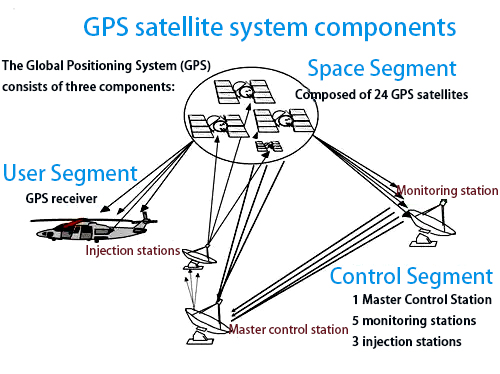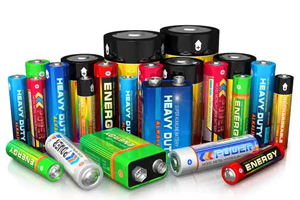How Does GPS Work? Understand the Science of Global Positioning Systems
Author:admin Date: 2025-03-29 08:11 Views:142
Introduction
How often do you use Google Maps to find directions to your favorite restaurant? Besides finding the best restaurants, you may use GPS in other ways without knowing how it works. It is amazing how GPS has become so important in our lives, and we rely on it to get many things done.
If you are interested in learning more about GPS, how it works, its segments, applications, and much more, this is the guide for you. We go into great detail to ensure you understand it better.
What is GPS?
GPS, or the Global Positioning System, is a navigation system based on a satellite network that helps determine the location, time synchronization, and velocity on earth.
This is how you can always tell your accurate location from Google Maps and similar technology, as they rely on GPS information to determine where you are.
A fun fact is that the GPS consists of over 30 navigation satellites circling the earth. Such a network guarantees greater accuracy in satellite positioning.
Segments of the GPS System

GPS has three main segments: the space segment, the control segment, and the user segment. Each segment is key to maintaining the GPS’s accuracy and performance.
Space Segment
This segment has several satellites transmitting radio signals to the users. The United States maintains 24 GPS satellites for this segment. It is estimated that at least 95% of the satellites are always available.
Such commitment to keeping the GPS technology running smoothly. The US Space Force has maintained over 31 GPS satellites for the last decade for this operation.
Control Segment
There has to be a ground team monitoring how the satellites are working and also tracking them. That is where the control segment comes in.
In addition to monitoring satellite transmissions, the team performs analyses and sends data back to the constellation if necessary.
Under the control segment, we have the Operational Control Segment or OCS. It features the master control station, an alternative master control station, 16 monitoring sites, and 11 command and control antennas.
The control segment keeps getting upgrades, as they are essential to keeping the GPS satellites running correctly and enhancing cybersecurity.
User Segment
The user segment comprises of GPS receiver equipment. For example, your smartphone has a GPS receiver key that communicates with the satellites to help find your position. The receiver will get the signals from the GPS satellites and calculate the position and time.
The overall dependability of GPS has made it easy to use it in many applications. It is used in industries such as farming, construction, surveying, mining, supply chain management, and more.
How GPS Works

Whether it is a GPS dog collar or a GPS tracker for kids, they all work the same. The GPS satellites always broadcast radio signals, which contain time and location signals.
Once the GPS receiver receives this information, it measures the time it took to receive it from four other satellites. This information is then used to calculate the distance from each satellite.
Measuring the distance from three or more satellites is called trilateration. Knowing these distances lets the receiver pinpoint its location on Earth.
Information coming from the fourth satellite usually helps determine the altitude; thus, you end up in a 3D position.
Time synchronization is also worth noting, as the GPS gets this information from the atomic clocks on the satellites. They are vital for providing precise time, which is essential for accurate positioning.
Types of GPS
A GPS speedometer or a GPS tracker for a car are some of the types of GPS you will come across readily available for use. However, GPS is mainly categorized as standalone GPS navigation units, integrated GPS, and specialized GPS.
Standalone GPS Navigation Units
These are GPS units designed mainly to aid with navigation. Expect to find them with features such as pre-loaded maps, route planning, and more. Examples include the TomTom units, Garmin devices, and other related products.
Integrated GPS Systems
These are GPS units that are part of other devices. For example, your smartphone or tablet has a GPS receiver, which you use to get accurate location services from Google Maps or Waze.
The same can be found in wearable devices such as smartwatches. You can use such technology to track your fitness activities or while navigating outdoors.
Another common application for such systems is vehicle navigation systems. Many modern cars have these systems to provide real-time navigation.
Specialized GPS Trackers
Let’s say you need GPS tracking for your fleet of cars. You can then install these GPS trackers to make it easier to monitor your fleet and send recovery if needed.
People also now have personal trackers. These could be for children, the elderly, or even pets. It is sometimes good to always know where your child is, depending on the environment.
Asset trackers also fall into this category. They are key to ensuring you know where valuable assets are while in transit.
GPS Services You Should Know
Devices such as a child’s GPS tracker operate using the Standard Positioning Service, or SPS. This type of GPS service is open and available to anyone worldwide. It provides basic positioning and timing information for general applications such as location and navigation.
The other GPS service is the Precise Positioning Service or PPS. This one has restricted access and will primarily be used by the US military and key program partners.
The PPS offers enhanced accuracy and security, which is crucial for the mission-critical applications the military and related agencies must carry out.
Research institutions can be given access to the PPS if approved.
Expect the accuracy of the SPS to be less precise than that of the PPS.
Advantages of GPS
- One thing that stands out for GPS tracker for dogs or GPS tracker for vehicleis the accurate positioning. GPS can give you accurate information about the location of something.
- With global coverage and being 100% free, you are always sure to use it whenever it is necessary.
- People now use GPS tracking devicesto learn about the traffic situations on the roads they are using. This can help you plan better.
- You can also improve your safety, as GPS provides real-time data if rescue agencies need to reach someone.
- With GPS, you can also include geofencing to create a virtual boundary. They will trigger an alert if a certain event happens, enhancing security and improving perimeter monitoring.
- Some companies now use GPS apps and devices to improve productivity. For example, GPS can be used for route optimization, fuel management, and much more. You can optimize your company operations based on such key data.
As you continue using GPS, you are likely to encounter more benefits. Expect to find GPS receivers in many modern devices as they improve many things.
Common Applications of GPS

GPS has proven to be quite vital in our lives today. Expect to find GPS technology in various fields enhancing many things. Below, we look at the common applications of GPS in many industries.
– Agriculture
GPS technology has greatly improved the agriculture sector. Farmers can now use GPS for farm planning, soil sampling, yield mapping, and more. The same technology can also be implemented in farm equipment to apply fertilizers, herbicides, and pesticides effectively.
– Aviation
The use of GPS in aviation is not new. It has been used for the longest time to ensure better safety and improve the efficiency of flights by using the shortest routes possible. As GPS continues to expand, it also helps find more new and efficient air routes for airlines to use.
– Environment
GPS technology, together with GIS packages, has helped in the proper analysis of the environment. With such data in mind, several steps can be taken to ensure we preserve the environment. This technology can also be used during environmental disasters, such as fires, to contain them more efficiently.
– Marine
Marine operations such as search and rescue rely on GPS. This is because the technology provides increased efficiency and safety for mariners, helping them find lost people while still handling their daily job needs. GPS data is also vital for underwater surveying, mapping, and finding optimum fishing locations.
– Rail
Rail companies need GPS data for real-time tracking of rail cars, locomotives, and maintenance vehicles. This is vital so that you do not have a train on a rail line under maintenance that day. Still, GPS can improve overall rail safety, reduce delays and accidents, and keep operating costs down.
– Recreation
Let us say you are looking for an outdoor trail. GPS devices such as those from Garmin can help you identify the best places for trails. Such devices can still be loaded with various maps with multiple recreation spots so that you can have a good time outdoors. They are also small and portable, meaning you can take them anywhere you want.
– Roads and Highways
It is amazing how GPS can improve how we use our roads and highways. If you can use GPS to identify the best route possible, you can save so much time. The same technology is also used for managing mass transit systems, emergency vehicles, and road maintenance schedules.
– Public Safety and Disaster Relief
Disaster relief sites are now easy to identify using GPS data. We have seen this in action several times when hurricanes and other natural disasters strike in different parts of the world. We have seen cases where fires were put out since the GPS data came in handy to identify and send a team to the location.
Is GPS Accurate?
You would always want to know how accurate the GPS tracking devices are as you keep using them. Well, the typical positioning accuracy for GPS is 3 to 5 meters. For most applications, this is still accurate.
GPS accuracy is mostly affected by a few factors, including signal blockage, atmospheric conditions, receiver quality, and satellite geometry.
Most of the time, if the satellites are clustered together, the geometry can be poor, resulting in less accurate positioning. As for signal blockage, things such as buildings, trees, and many other obstructions can weaken the GPS signal.
Weather conditions like heavy cloud cover may affect GPS signal accuracy. We also recommend investing in a good-quality receiver. This is a vital component that receives and processes the signals. You can see how a poor-quality receiver can affect accuracy.
Disadvantages of GPS
As we have seen above, GPS technology has done a lot of good in many industries. However, there have been a few challenges when using it. Here are some notable disadvantages of GPS.
- Signal interference often leads to inaccurate positioning. We hope this can be improved over time.
- The cost of equipment can be high, especially for applications that require high precision. For example, high precision and accuracy are needed for surveying and mapping.
- There have been privacy and security concerns with the use of GPS technology. GPS tracking often raises privacy concerns as unauthorized parties can sometimes access the information. Still, GPS systems may be vulnerable to spoofing and signal jamming, compromising security and reliability.
Conclusion
GPS technology has grown so much over the years, and now we can easily have it on our mobile devices. Since the technology offers good accuracy in terms of positioning and time, it is bound to receive many more applications in the future. We see it being used in many industries to power several applications. Even though GPS technology might have a few downsides, it remains key in improving our lives. The pros outweigh the cons, and we can only expect it to get better.


